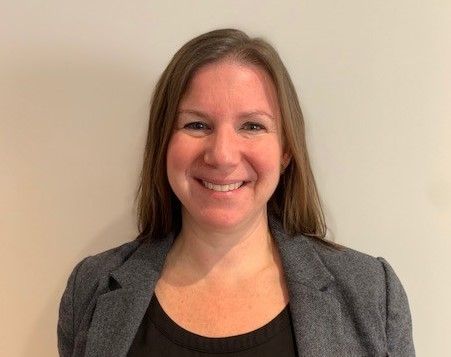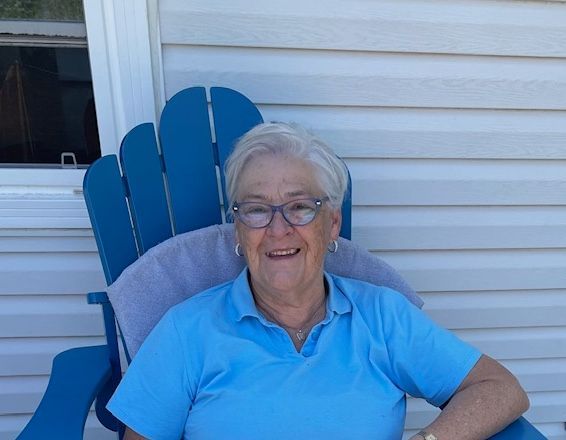National Caregiver Day, because we care
National Caregiver Day is April 1st and this year’s theme is “We care”. In Ontario, 1 in 4 people is a caregiver— meaning an ordinary person who cares and provides unpaid physical and emotional support to a family member, partner, friend or neighbour.
Why do we need a Caregiver Day?

“Because we need to recognize that caregivers play such a critical role in healthcare and in patients’ lives. They are the backbone of the health system, providing an estimated 75% of the care to patients, so we need to honour their invaluable contributions. And we need to promote the tools and resources available to support them in their journey,”
says says Bianca Feitelberg, Project Lead, Strategic Partnerships and Innovation at the Ontario Caregiver Organization(OCO).
The Ontario Caregiver Organization (OCO)
The OCO’s mission is to improve the lives of Ontario’s estimated 4 million caregivers, ordinary people who provide physical and emotional support to a family member, partner, friend, or neighbour. The organization provides caregivers with one point of access to information, services, and supports that empower and help enable them to be successful in their role.

On a daily basis, caregivers may become responsible for most of the personal care that a person can no longer do unassisted. Caregiving may include helping a person with basic necessities such as getting out of bed, bathing, dressing, grooming, eating, and managing medications. The caregiver may also be called upon to help with mobility and transportation, communicating with health professionals, shopping, companionship, and emotional support. Without appropriate support, caregivers can become overwhelmed and be at risk of burnout.
Experience as a caregiver

Ginette Beaudry is a member of the Patient, Family and Client Advisory Council (PFCAC) of the Archipel Ontario Health Team. She has over 15 years' experience as a caregiver. “I accompanied my mother, my sister and my daughter when they were at the end of their lives. And I'm currently a caregiver for my husband. I can attest to the reality of being a caregiver. As a caregiver, we need to hear How are you doing? We need to know that others care about our well-being, because we don't have time to think about it ourselves. Above all, we need practical help and respite, because we often can't sleep. We’re on 24 hours a day.”
There is no typical caregiver
Caregivers are often associated with older couples, but the reality is quite different and there is no typical caregiver. Parents taking care of a sick child, siblings taking care of each other, teenagers and young adults taking care of a parent or grandparents, people caring for found family or supporting a neighbour—they’re all caregivers.
“Often, people may not identify themselves as caregivers or may not be recognized as such, especially young caregivers who are often not recognized for their caring roles. Many people will find themselves in the caregiving role suddenly, meaning they aren’t prepared for the role, or the full impact it will have on their lives . Some people who anticipate caregiving duties may have a hard time broaching that conversation, because it can feel uncomfortable. Many think that the system will take over whenever a situation arises, but that may not be the reality. Research shows that the combination of an aging population and people living longer will lead to a significant increase in the number of chronic disease cases that, in turn, will translate into a steep growth in the number of caregivers,” says Mariam Zohouri, Manager of Communications at OCO.

Expected increase in major illnesses and the number of caregivers
In 2024, the Dalla Lana School of Public Health and the Ontario Hospital Association published the report Projected patterns of illness in Ontario. The report found that approximately 3.1 million people will be living with a major illness in 2040—an increase of 72% compared to 2020. Cases of osteoarthritis, diabetes, and cancer are expected to increase the most. In addition to the aging population, underlying structural and social determinants of health will also be contributing factors to these expected increases.
Resources for caregivers
As the number of caregivers and demand for services increase, OCO keeps on finding innovative ways to support caregivers as well as informing system planning about their important role.
“Being a caregiver can be rewarding, but as caregivers take on more responsibilities, the challenges are taking an increasing toll on their physical and mental health. They need support. They need help in navigating the system. So we adapt our programs and provide caregivers with culturally safe and appropriate resources to suit their needs. For example, because of their expertise, we worked with Lakehead University to develop a toolkit for Indigenous communities. Locally, we connect with caregivers and organizations through regional leads and Ontario Health Teams,” adds Bianca.
OCO offers services in English and French and has also produced resources in the top five other spoken languages in Ontario. The organization provides toolkits for different groups and communities: young caregivers, as well as caregivers from Indigenous, Black and 2SLGBTQIA+ communities, as well as a helpline, webinars, and peer support groups. They also have resource packages for care providers on how to support caregivers. OCO partners with other organizations to bridge gaps in programs and services so all caregivers, regardless of age, condition, or geographic location have access to the help they need.
Concrete help for caregivers
A retired teacher, Ginette volunteered with Carefor's palliative home care program for five years, before the pandemic. Today, she is a volunteer driver for Prescott-Russell Community Services. She lives in Limoges, a rural village east of Ottawa, and she sees first-hand the challenges faced by the people she drives to Ottawa, Cornwall and Hawkesbury hospitals for medical appointments and treatment. “I often have two passengers: the patient and the caregiver. So I take the time to ask them how they're doing. And if I can give them information, I do,” she adds.
Ginette dreams of better links between patients, caregivers and healthcare professionals. On Archipel's PFCAC committee, she sees the will to make changes as well as the financial constraints. “The caregiver saves the system money, so in an ideal world, there would be funds to help caregivers and patients in a more concrete way, especially in rural areas where public transportation is non-existent. A coordinator or social worker assigned to the caregiver to accompany them and refer them to services would help a lot. And funds to offer respite for a few weeks so that the caregiver can really get some rest and sleep. It's an important issue if we want people to be able to age at home,” concludes Ginette.





